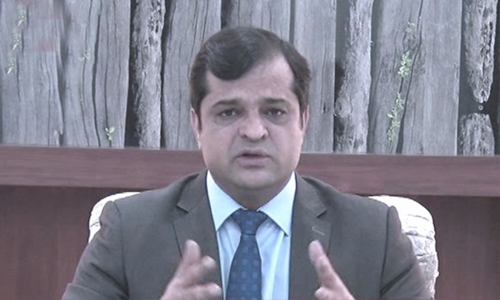The acute water crisis has affected the green belt of Balochistan that is situated in the eastern parts of the province and is the agricultural hub. Over the decades, parts of it have become barren owing to two reasons: firstly, the Sindh government distributes water to Balochistan unfairly and secondly, within the province, the local landlords distribute water unjustly to the local farmers via canals.
This man-made crisis has resulted in a drought-like situation, so much so that many locals do not have drinking water, let alone for watering their lands in order to grow wheat and rice, among other things.
One of the places is Gandakha, which is a tehsil of district Jafferabad that borders Sindh. Kirthar canal that supplies water to Gandakha, via Indus, has dried up. In the words of the locals, the infamous 2007 floods in Balochistan wreaked havoc in terms of accumulating mud in the Kirthar canal and it has not been cleaned up to this day. This is one of the reasons Gandakha is deprived of water for quite some time.
In some cases, people from Balochistan have to go to Sindh to fetch water
In some places, locals and animals drink from the same source if they are lucky enough to find water. The water situation has pushed locals to fetch water from far-flung areas of Gandakha. For instance, locals go to the Saifullah canal at the outskirts of Gandhara to fetch water even though it is miles away, near Sindh’s border; in some cases, people have to go to Sindh for water.
As a whole, Balochistan has been facing an acute water crisis. Gwadar, the emerging port town in the country and the epicentre of the China-Pakistan Economic Corridor, too, faces a water shortage. But Gandakha, unlike Gwadar, does not get media attention, which is why its locals have recently been forced to take out a rally to clamour for water being supplied to their tehsil. Their appeals have fallen to deaf ears despite the residents going to court in Quetta, the provincial capital of Balochistan.
What is more unfortunate is the fact that several districts in eastern Balochistan are predominantly dependent on agriculture that is dying out. As the locals’ key source of livelihood is associated with agriculture, they are becoming penniless. If the higher authorities continue to ignore the acute shortage and fair distribution of water in the green belt, it will not be long before other places will meet the same fate as that of Gandakha.
Published in Dawn, The Business and Finance Weekly, September 27th, 2021














































